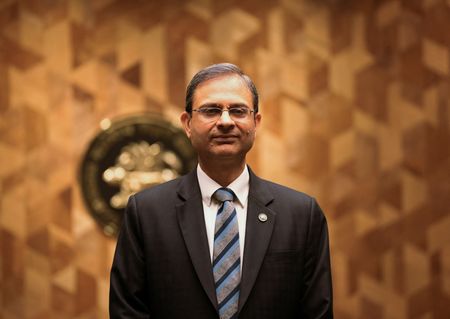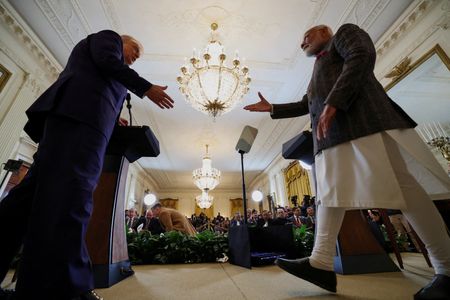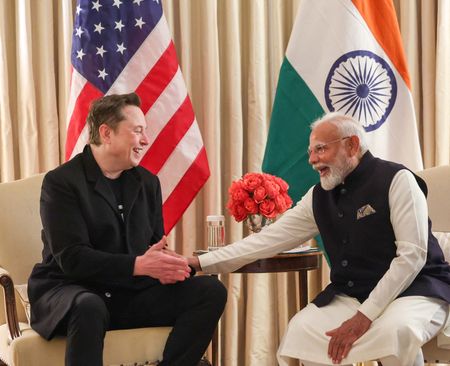By Dharamraj Dhutia
MUMBAI (Reuters) -An internal working group of the Reserve Bank of India has suggested keeping the overnight weighted average call money rate as the operative target of monetary policy, and has recommended a shift to seven-day operations as the main tool.
The group was studying the liquidity management framework that has been in place since February 2020. The recommendations were uploaded on the central bank website on Wednesday.
The operative target is the market rate the central bank seeks to align with its policy repo rate through market operations.
While keeping the call rate as the operating target, the central bank may continue to keep a track of rates in other overnight money market segments to ensure an orderly evolution of market rates and to smoothen policy transmission, the report said.
The group said that the RBI may manage transient liquidity in the banking system primarily through 7-day repo and reverse repo operations, along with operations of tenors ranging from overnight to up to 14 days.
It has recommended that 14-day repo and reverse repos be discontinued as the main liquidity tools.
The RBI infuses funds into the banking system using repos and withdraws them using reverse repos.
The group has recommended the continuation of variable rate auctions for repos and reverse repos.
The recommendations come despite banks’ request to re-introduce fixed rate liquidity operations. Last week, Reuters had reported, citing sources, that the central bank was not in favour of such operations.
The RBI group has suggested that the central bank retain the daily minimum requirement of 90% of the cash reserve ratio, against banks’ request for a reduction to 85%.
Other recommendations include continuation of the existing monetary policy corridor, and advance notice to the market, at least of one day, while conducting liquidity operations.
The RBI governor earlier in the day reiterated that the central bank would continue to be nimble and flexible in its liquidity management.
(Reporting by Dharamraj Dhutia, Editing by Mrigank Dhaniwala and Ronojoy Mazumdar)











